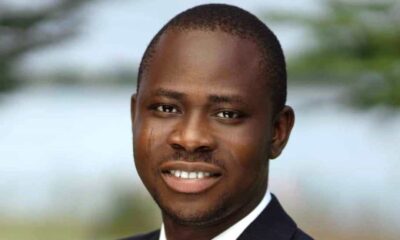Health
Resident Doctors Challenge FG’s Threat On “No Work No Pay” Rule


National Association of Resident Doctors (NARD) has challenged Federal Government’s plans to apply the “no work, no pay” rule amid industrial actions, describing the move as disgusting.
The Union said it was primitive for the Federal Government to issue threats of “no work, no pay” strategy, instead of seeking for ways to redeem the promises it signed over 116 days ago with doctors.
Grassrrots.ng reported on August 2, 2021, that resident doctors had embarked on an indefinite strike over alleged Federal Government’s failure to implement a Memorandum of Understanding (MoU).
NARD President Uyilawa Okhuaihesuyi said: “It is a pity that we live in a country that does not appreciate the rule of law and the rights of those in authority. You are owing four months’ salary and you want to invoke ‘no work, no pay’. You signed a Memorandum of Action (MoA) and you did not honour it, the Nation reported.
“In a country that knows what they are doing, the government tries to do their part to make things work. If you have the power to sign something over 116 days ago and you cannot deliver it, then you should leave your position. In other climes, that is what they do. If you know you cannot function well, you should honourably resign.
“You are trying to use your power to punish people you have not paid. You are beating a child and asking that he or she should not cry. It is shameful.
“One thing those in authority do not know is that nobody stays there forever. It has been done before by Prof. Onyebuchi Chukwu, Prof. Isaac Adewole, former Ministers of Health.
“Now, it is the turn of Dr. Ngige. We applaud him for the legacy he is leaving behind and hope that posterity will not ask him in years to come what he did to his fellow doctors.
“He is only going to encourage us to try to migrate out of the country, especially when there is a shortfall in the Health sector.
“In the 1960s at the University College Hospital (UCH) in Ibadan, people used to come from Saudi Arabia for treatment in Nigeria because we had one of the best facilities in the world.
“As it stands now, there is no single government-owned hospital that can compare to even those in Ghana, South Africa, not to talk of the United States of America (U.S.A) and the United Kingdom (UK) where they all run to. Only posterity will tell.
“The seven-day ultimatum will end tomorrow (today). My prediction is that by tomorrow or the day after tomorrow, they are going to go to court to restrain us from going on a strike.”
“Secondly, it is sad that he (Dr. Ngige) does not know the rules of residency. The resident takes a lot of his years and inputs. If you are going to use a locum (casual) doctor that is just starting and basically has no clue of what is happening to replace those already in training, that means he should go back to Medical School and get an update.
“You should know that you cannot replace a Senior Registrar with a House Officer or even a Registrar.
“So, you want to go and use a locum doctor when the ones you have, you can’t even afford to pay them. I think the problem is that Nigerians are not asking them questions. If Nigerians should ask them that today is the 117th since they signed and what have they done?” You
-



 GRPolitics4 days ago
GRPolitics4 days agoWhat the 2026 FCT Elections Reveal About Nigeria’s Democracy
-



 Energy2 days ago
Energy2 days agoSenegal Revokes Nigerian Billionaire Arthur Eze’s Offshore Oil Licence
-



 Transport4 days ago
Transport4 days agoAfolabi Hails Customs CG on His Birthday
-



 GRPolitics2 days ago
GRPolitics2 days agoAPC e-Registration Intensifies in Enugu as Nomeh Ward Flags off Exercise








